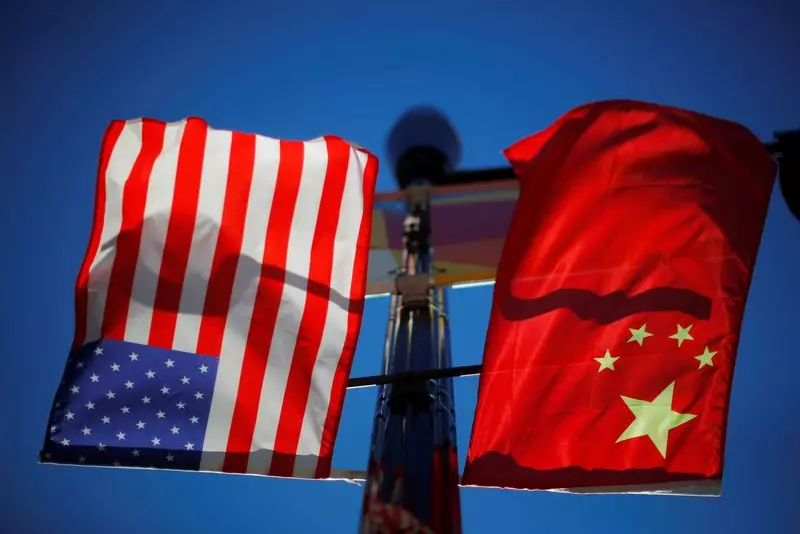Recent developments in U.S. legislative actions illustrate a pronounced shift towards safeguarding national security in the face of rising concerns regarding China. With the U.S. Congress poised for a significant vote on restricting American investments in China, the political climate signals a growing wariness of Chinese economic practices and advancements in technology. This legislative thrust, embedded within a broader appropriations bill, seeks to curtail direct financial engagement with sectors that could amplify China’s military and technological capabilities, which the U.S. has deemed a national security threat.
Set to undergo legislative scrutiny, the forthcoming bill is a direct response to rules finalized by the Treasury Department that will soon come into effect. These rules, aimed at limiting American investments in critical sectors such as artificial intelligence and other pivotal technologies by January 2, represent just the latest step in an ongoing series of measures. By expanding these restrictions, Congress intends to implement comprehensive evaluations of potential national security risks tied to Chinese-made consumer technology, particularly routers and modems, as well as prospective investments in real estate near sensitive national security sites.
Senator Bob Casey’s remarks succinctly capture the bipartisan sentiment surrounding this bill: there is a growing acknowledgment that China poses an economic threat that necessitates robust legislative safeguards. This stance reflects a larger belief among lawmakers that securing advanced technology from falling into adversarial hands is vital to maintaining the U.S.’s strategic advantage.
In contrast, the Chinese foreign ministry has expressed vehement disapproval of what it perceives as strategic overreach by the U.S. government. Designating these actions as “artificial obstacles,” China emphasizes how such measures could destabilize global supply chains and economic interactions—one of the cornerstones of modern international relations. Spokesperson Lin Jian’s advocacy for a return to collaborative economic ties illustrates China’s desire to counteract what it sees as unnecessary politicization of trade matters. Both nations face a precarious situation; the potential fallout from these restrictions could reshape not only their bilateral relationship but also global economic dynamics.
Additionally, the bill will compel the Federal Communications Commission (FCC) to maintain a comprehensive list of entities that are under foreign adversarial influence, particularly those tied to China. This mandate aims to improve transparency within the industry and prevent potential threats from telecommunications and technology companies that retain ties with adversarial governments. This regulatory measure indicates a strategic pivot towards a more security-focused approach in monitoring foreign involvement in critical technological infrastructures.
The implications of these measures extend beyond investment restrictions. Proposed bans on various Chinese products, including drones from companies like DJI and Autel Robotics, illustrate a concerted effort to not only limit investment but also histrionically jeopardize revenue streams for Chinese manufacturers. Such actions culminate in a deteriorating climate for U.S.-China economic relations that may have long-lasting repercussions on international trade norms and bilateral trust.
Critically assessed, the strategy has garnered support from several lawmakers who are wary about American funding potentially boosting the Chinese military’s technological capabilities. Representative Rosa DeLauro articulated a concern echoed by many that previous American investments have inadvertently contributed to the advancement of adversarial technologies. The proposed legislation, she argues, not only aligns with the administration’s past regulatory efforts but also lays the foundation for future endeavors to protect America’s technological integrity.
As these legislative measures materialize, the outlook for U.S.-China economic interactions remains precarious. With both nations entangled in a web of interdependent yet adversarial relations, the path forward will likely involve continued scrutiny of foreign investments and heightened vigilance over economic practices. The clarity revealed through the legislative framework could serve as a bellwether for a new era in international economic relations—one defined by stringent security considerations and geopolitical rivalry. The international community will undoubtedly watch these developments closely, as they signal potential shifts in the landscape of global trade and technology.

